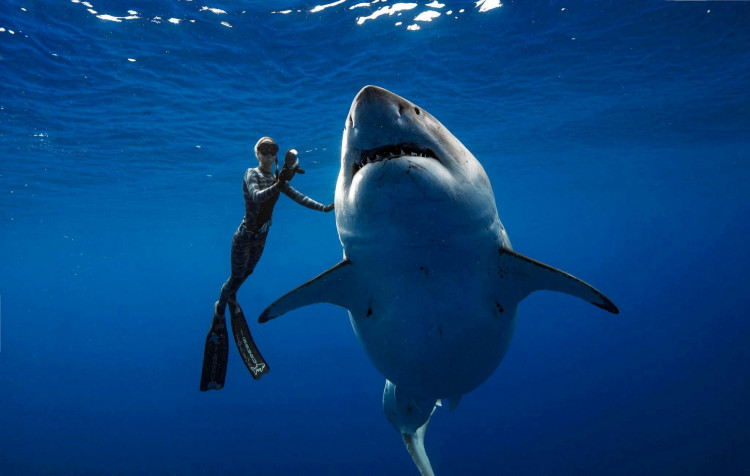Marine scientists working off the coast of Nova Scotia, Canada were able to find what could be one of the largest great white sharks in the world. According to the researchers working at OCEARCH, a non-profit organization that compiles and studies ocean wildlife data, the shark they managed to tag had weighed around 3,541 pounds and measured at 17 feet and 2 inches in length.
The scientist that found the massive apex predator called the female shark the "Queen of the Ocean." It was also given the nickname "Nukumi," which referred to a wise old grandmother figure in stories told by the Native American Mi'kmaq people. The exact age of the shark was not mentioned but the scientist stated that she was a rare "ancient mature female," likely around 50-years-old. Great Whites typically have a lifespan that is almost as long as humans of around 70 years.
Researchers at OCEARCH stated that they will closely be following the movements of the shark to hopefully learn more about its behavior. Nukumi was the largest of the eight sharks tagged by the scientists within their latest expedition, which has so far lasted for 27 days as of Monday.
The largest great white, recognized by the International Game Fish Association, was caught in South Australia in 1959. The specimen weighed in at only around 2,663 pounds. The largest that was reliably measured was caught in Western Australia, which had a length of over 19.5 feet. Other specimens measuring above 21 feet and weighing more than 7,000 pounds were also reportedly caught in Cuba in 1945 but no concrete evidence of photos exists.
After finding the shark, the group posted a video on social media that showed the shark lying on a platform built on the side of their research vessel. The video also showed how they had set the shark free after installing its tag and collecting samples. Apart from sharks, the team had also tagged and collected samples from various other marine animals, including dolphins and seals.
The organization provides real-time data on the movements of select marine wildlife. Marine life enthusiast and ecologists can also download an app made by the organization to stay up to date on their expeditions and discoveries.
According to the World Wildlife Federation, the number of great white sharks in our oceans is decreasing. Despite their reputation and being the world's largest predatory fish, great whites are still vulnerable to changes in the environment, particularly those made by humans.




